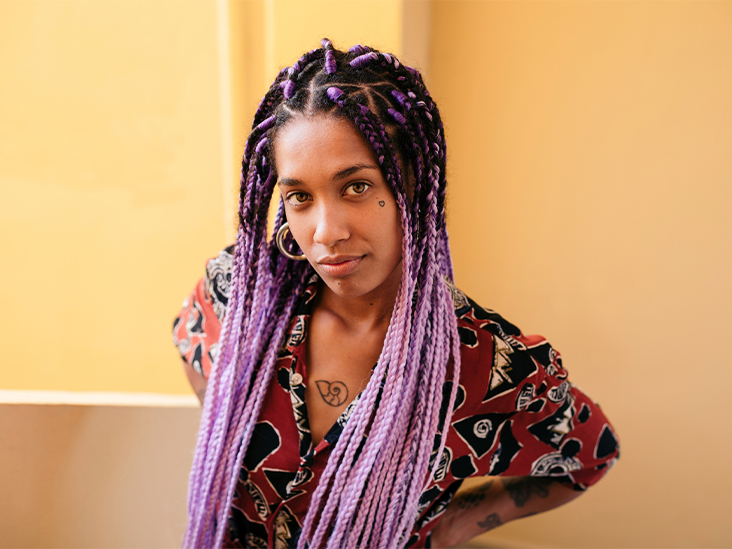Bipolar disorder and depression are both considered mood disorders. Bipolar disorder causes emotional highs and lows, while depression causes a constantly low mood.
The “bi” in the word “bipolar” means “two.” In bipolar disorder, you shift between two poles, or mood extremes. You have very high moods (called manic episodes) and very low moods (called depressive episodes).
Depression is considered unipolar. “Uni” means “one.” Depression features just one mood: a down or sad feeling that lasts for at least 2 weeks.
The depressive episodes in bipolar disorder can look just like those seen in major depression. The occurrence of at least one manic episode distinguishes unipolar depression from bipolar depression.
However, with dipolar disorder, you can have depressive episodes for many years before your first manic episode appears. And the wrong diagnosis can delay you from getting the treatment you need.
This article will help you understand more about bipolar depression and major depression. You can use it as a guide when you talk with your doctor about your symptoms.
The depressive episodes in bipolar disorder are similar to major depression. Both conditions cause:
- extreme sadness or hopelessness
- feelings of restlessness or guilt
- poor sleep or sleeping too much
- loss of interest in things you once enjoyed
- difficulty focusing
- moving more slowly than usual
- feeling hungrier than usual (or the opposite, feeling a loss of appetite)
- weight gain (or weight loss when not dieting)
- decreased sex drive
In major depression, you have these symptoms most of the day almost every day for at least 2 weeks. Bipolar depression symptoms are also with you for most of the day every day. These symptoms can last for days to weeks.
The difference with bipolar disorder is that you also have episodes of mania, with symptoms like:
- a high mood
- racing thoughts
- increased energy
- less need for sleep
- irritability
Bipolar disorder has three distinct types:
- Bipolar I disorder. Manic episodes that last for 1 week, plus depressive episodes that last for at least 2 weeks.
- Bipolar II disorder. Episodes of major depression plus episodes of hypomania, which is less severe than mania. Symptoms of hypomania include increased energy, talkativeness, and racing thoughts.
- Cyclothymia. Hypomania and mild depression that last for at least 2 years.
People with mania experience symptoms of depression about one-third of the time, according to the Brain & Behavior Research Foundation.
Those with hypomania have depression about half the time. Either way, depressive symptoms can be a cause for concern.
The steps for getting a diagnosis are similar for depression and bipolar disorder.
A healthcare professional will examine you and ask about your mood and medical history. They may also request blood tests to rule out a thyroid condition or other medical condition that may cause symptoms similar to depression.
A psychiatrist or other mental health professional can confirm the diagnosis.
A past depressive episode plus at least one episode of mania or hypomania are signs that you have bipolar depression, not clinical depression. Another clue is if other family members have been diagnosed with bipolar disorder.
It can take a few years to get an accurate diagnosis of bipolar disorder because its symptoms look so similar to depression. About
Bipolar depression can increase your risk of suicide and substance abuse. That’s why it’s important to get started on the right treatment as soon as you can.
Antidepressants are the standard treatment for depression. These medications might not work as well for people with bipolar disorder, though, because they could trigger a manic episode.
The real risk of experiencing a manic episode due to an antidepressant is low. But a mood episode could be dangerous if it does happen.
The approved medicines for bipolar depression are mood-stabilizing drugs, including:
- olanzapine (Zyprexa)
- combination fluoxetine and olanzapine (Symbax)
- quetiapine (Seroquel)
- lurasidone (Latuda)
Talk therapy, also called psychotherapy, is another important part of treatment. A mental health provider can teach you ways to change negative thoughts that are contributing to your depression and strategies to help you cope.
Medication and therapy aren’t the only ways to control bipolar depression. A few healthy lifestyle changes can help you feel better and reduce mood episodes.
Eat for your mental health
Fruits, vegetables, whole grains, and foods rich in omega-3 fatty acids (like fish) can help balance your moods.
Avoid alcohol and sugar, which can make you feel worse.
A nutritious diet also curbs weight gain, which is a side effect of some bipolar disorder medications.
Move into a better mood
There’s a reason you feel a “high” after a good run. Exercise boosts mood.
To treat depression, experts recommend moderate-intensity aerobic exercise (like walking or biking) at least 3 times per week.
Rest up
A lack of sleep can worsen depression and mania. To get more rest, turn off your cell phone before bed and go to sleep at the same time every night.
Limit caffeine and alcohol before bedtime. If you still can’t sleep well, ask your doctor for advice.
As you work to manage your bipolar depression, remember that you’re not alone. There are a variety of supports and services that can help you.
The first people you might turn to are friends and family you already trust. You can also talk with a mental healthcare professional. Or join a support group through an organization like the Depression and Bipolar Support Alliance.
Bipolar depression is different than major depression, even though they can look very similar.
It might take time to arrive at the right diagnosis, especially if you have depressive episodes without manic episodes to start.
Be patient, and be open with your treatment team. Report any new symptoms to your doctor.
If the treatment you’re on doesn’t seem to help your symptoms, make an appointment with your doctor to talk about other options.
